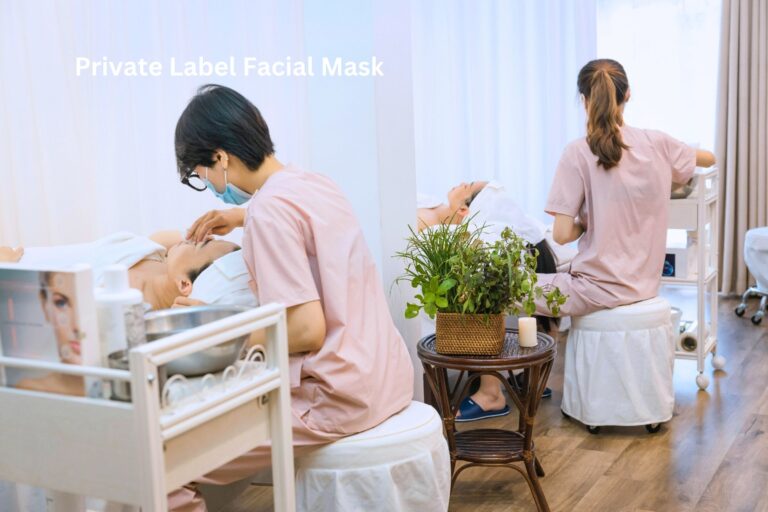Introduction: The Rise of Private Label Skincare
The beauty and skincare industry has witnessed remarkable growth in recent years, fueled by consumers’ increasing focus on self-care and wellness. Among the most popular products in this category are facial masks, prized for their ability to address a variety of skin concerns effectively. Private label facial mask manufacturers have emerged as key players in this thriving market, offering brands the opportunity to create customized skincare products without the need for in-house production facilities.
What Are Private Label Facial Mask Manufacturers?
Private label manufacturers specialize in producing products for other companies, allowing brands to market these items under their own label. In the case of facial masks, these manufacturers handle formulation, production, packaging, and labeling, enabling businesses to launch high-quality skincare products quickly and efficiently.
Advantages of Working with Private Label Manufacturers
- Cost-Effective Solutions – Brands save on research, development, and production costs.
- Customization Options – Manufacturers offer flexibility in ingredients, packaging, and branding.
- Scalability – Businesses can produce in small batches or scale up as demand grows.
- Speed to Market – Faster production cycles enable brands to capitalize on trends quickly.
Key Trends in Private Label Facial Mask Manufacturing
1. Focus on Natural and Organic Ingredients
Consumers today prioritize clean beauty, leading manufacturers to incorporate organic and plant-based ingredients. Popular choices include aloe vera, green tea, charcoal, and hyaluronic acid, which provide hydration, detoxification, and anti-aging benefits.
2. Innovative Mask Formats
Modern consumers seek convenience and novelty, leading to innovations like:
- Sheet Masks – Pre-soaked sheets for easy application.
- Clay Masks – Ideal for deep cleansing and pore minimization.
- Gel Masks – Cooling and soothing options for sensitive skin.
- Peel-Off Masks – Popular for exfoliation and impurity removal.
- Overnight Masks – Designed for prolonged hydration and repair.
3. Sustainable and Eco-Friendly Packaging
With sustainability becoming a priority, manufacturers are adopting biodegradable materials and refillable packaging options. This approach not only reduces waste but also appeals to environmentally conscious consumers.
4. Functional and Targeted Formulations
Private label manufacturers are increasingly developing masks that target specific skin concerns, including:
- Anti-aging and firming properties.
- Acne-fighting ingredients.
- Brightening and tone-correction solutions.
- Hydration and moisture retention.
Quality Assurance and Regulatory Compliance
Ensuring Product Safety and Efficacy
Private label manufacturers must adhere to stringent quality control measures to ensure product safety and efficacy. This involves:
- Ingredient Sourcing – Using premium, ethically sourced raw materials.
- Laboratory Testing – Conducting stability and compatibility tests.
- Certifications – Obtaining FDA approval, GMP (Good Manufacturing Practices) certification, and ISO compliance.
Regulatory Compliance in Different Markets
Skincare products must meet regional regulations, such as:
- FDA Regulations – In the United States.
- EU Cosmetic Regulations – In European countries.
- Asian Standards – Especially strict in markets like South Korea and Japan.
Customization and Branding Opportunities
Designing Unique Formulations
Private label manufacturers collaborate with brands to develop signature formulations that align with their target audience’s needs. This includes customizing fragrances, textures, and active ingredients.
Packaging and Label Design
Eye-catching designs and eco-friendly packaging help brands stand out. Manufacturers often provide in-house design services to ensure alignment with branding strategies.
White Labeling vs. Private Labeling
While private labeling allows complete customization, white labeling involves rebranding pre-existing products. Businesses should evaluate both options based on their branding goals and timelines.
Selecting the Right Private Label Manufacturer
Factors to Consider
- Experience and Reputation – Look for established manufacturers with a proven track record.
- Product Range – Ensure they offer a variety of mask types and ingredients.
- Certifications – Verify compliance with quality and safety standards.
- Flexibility – Assess their ability to handle custom formulations and packaging.
- Minimum Order Quantities (MOQs) – Check if their production volumes align with your needs.
Building a Strong Partnership
Successful collaborations require transparent communication and shared goals. Regular updates, feedback loops, and performance reviews can help maintain quality and consistency.
Future of Private Label Facial Mask Manufacturing
The future looks promising as private label manufacturers continue to innovate with advanced technologies such as AI-driven formulation development and sustainable production processes. Personalization is expected to take center stage, with products tailored to individual skin types and preferences becoming increasingly popular.
Conclusion: Elevate Your Skincare Brand with Private Label Solutions
Private label facial mask manufacturers offer a gateway for beauty brands to thrive in a competitive market. By leveraging their expertise in formulation, production, and packaging, businesses can deliver high-quality, customized skincare products that meet the evolving needs of modern consumers. Whether you’re a startup or an established brand, partnering with a trusted manufacturer can help you scale quickly, reduce costs, and maintain high standards of quality and innovation.
With the right strategies and collaborations, the opportunities in the private label skincare niche are virtually limitless. Brands can confidently expand their offerings, captivate their audience, and build lasting customer loyalty through exceptional skincare solutions.
